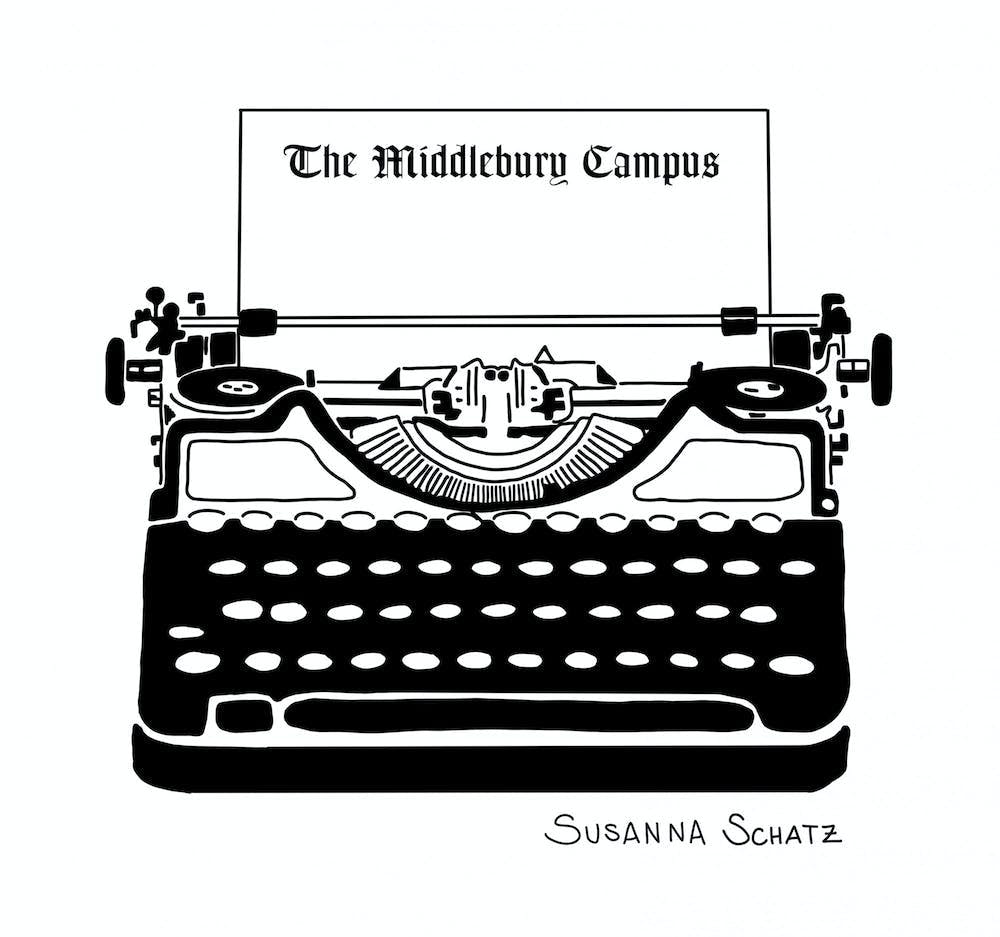Throughout our meetings this year, we have often wondered whether Middlebury students still have the resolve to agitate for political change on campus. From the pushback to Charles Murray to the fight for Energy2028 and divestment from fossil fuels, Middlebury students of the past have shown their ability to be activists, but we hadn’t seen such unified, large-scale movement for change on campus since before the Covid-19 pandemic. That is, until the Gaza Solidarity Encampment last week.
In our editorial board meeting for this issue — which lasted well over our usual hour — we focused on many different points regarding the encampment and its broader implications, and respectfully disagreed in a number of areas. Middlebury students are not a monolith and neither is our editorial board; this editorial recognizes our divisions and is only one of the many meaningful conversations that occurred on campus this past week.
We generally agreed that the civic engagement and dedication of the encampment was admirable, and were happy to see how it ignited public discourse on campus and led to a week of productive debate over free speech, the ongoing conflict in Gaza and the camp’s demands. Board members had some reservations about specific aspects of the demands, most notably the demand to “refrain from any form of academic or cultural association with Israel institutions and businesses,” which was eventually reflected in the fourth divestment question in the Student Government Association (SGA) referendum.
The protestors staked tents on McCullough lawn for seven nights, beginning the morning of Sunday, April 28. The group of students at the encampment, which grew to about 130 protestors at its peak, called for five demands involving divestment and transparency. They reached an agreement with the college administration and disbanded their tents on Monday, May 6. The same day, the college released a statement meeting the protestors’ demand to call for a ceasefire and taking steps toward the divestment demand, affirming the value of financial transparency. The protestors intend to meet with the Board of Trustees this Friday to advocate for their divestment demands, following the SGA referendum on Solidarity with Gaza that closes at midnight on Thursday.
We were pleased that the encampment was peaceful, and that students and the administration were able to work productively together, particularly compared to events at other universities over the past weeks. Dozens of student protestors at Columbia University were arrested by the New York Police Department, over 90 students and faculty at a pro-Palestine protest at Dartmouth College were detained by local and state law enforcement and the University of Vermont enacted disciplinary proceedings toward protestors on Monday. We were grateful that the college respected the protestors’ right to freedom of expression without bringing in additional police forces or exerting unnecessary force. This commitment allowed both sides to engage in more meaningful conversations, make negotiations and reach an agreement efficiently.
The encampment made a conscious effort towards inclusion of anyone in the community, particularly in combating antisemitism. Some of our staff attended workshops like “Let’s talk about antisemitism” and “Zionist co-opting of Judaism,” led by Jewish students at the encampment. The encampment also denounced the cutting in half of the Israeli flag hanging from a window in Forest Hall — even interrupting an ongoing workshop to mention it. Still, though, some Jewish students perceived antisemitic connotations to the chants said by protesters, including “From the river to the sea, Palestine will be free.” Some may have felt that the very existence of the encampment disrupted their day-to-day life on campus. Other students, both in and outside of the encampment, described feeling hesitant to voice opposition to some components of the encampment’s proceedings. Even the best efforts of those at the encampment could not fully diminish these sentiments.
In light of the college’s decision not to allow regular classes to move to the encampment, we discussed the social and academic pressures surrounding engaging in the protest. While some students and professors reported benefitting from class at the encampment, the administrative decision benefitted the larger community. Faculty members reported granting students the option not to attend class, which some students did take, but Board members cited the possibility of social pressures, either from professors or fellow classmates, in someone’s decision to attend class. The college also deserves credit for not preventing professors or staff from attending the protest in a personal capacity.
We appreciated the SGA’s referendum, which provided students with an opportunity for direct input on divestment in four specified areas. There was the most debate amongst our Board and students on campus regarding the fourth item that called for a boycott of all Israeli businesses. We have not settled the issue amongst ourselves and do not know what the referendum will return on that point; hopefully students will carefully consider the details of all four topics and return an informed vote by midnight on Thursday.
While the stakes have been removed and the grass is coming back to life on the lawn, we hope the effects of the encampment on discourse at Middlebury will live on past its physical presence on campus. The protest has inspired discussions and sparked questions in a way that we have never seen in recent history as an institution. That is a legacy we should continue: for all of us returning in the fall, let’s strive to remember the protest in our dialogue.
Regardless of how people felt about the encampment and the statement the college released on Monday, we agreed that the protest encouraged productive conversations across campus. Whether students attended workshop events at the encampment, read infographics on the Middlebury Students for Justice in Palestine (SJP) Instagram, or discussed the encampment with friends in Proctor Dining Hall, the events of last week got people informing themselves on and talking about a decades-long conflict. While the protestors have vowed to continue fighting, any protest that encourages dialogue and awareness of the issues is a victory in and of itself.




